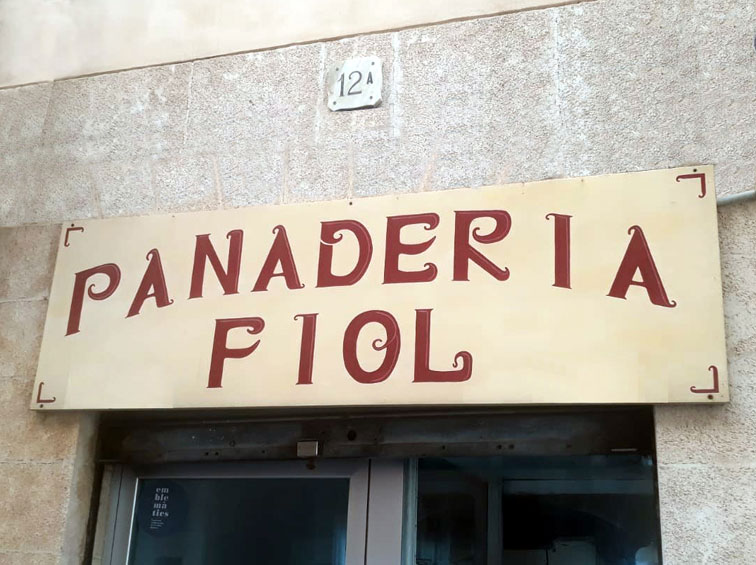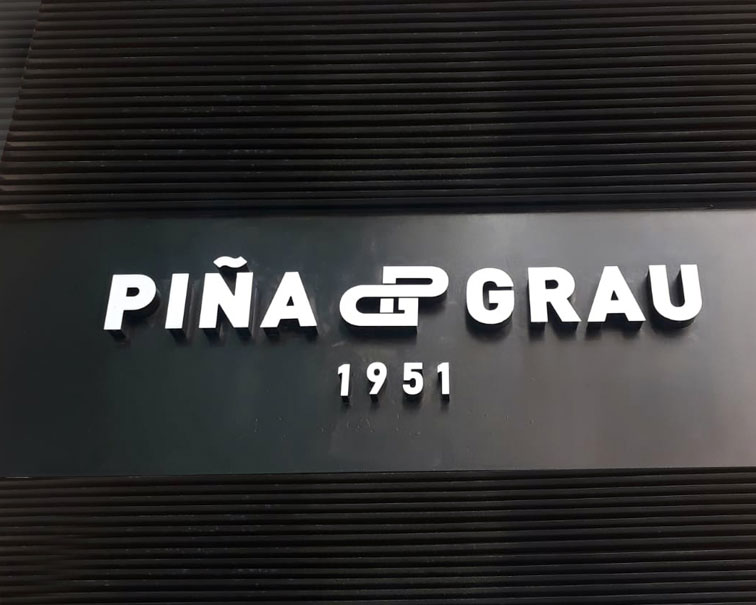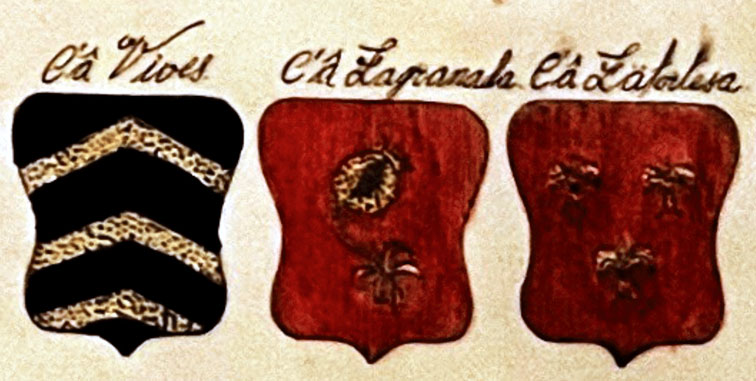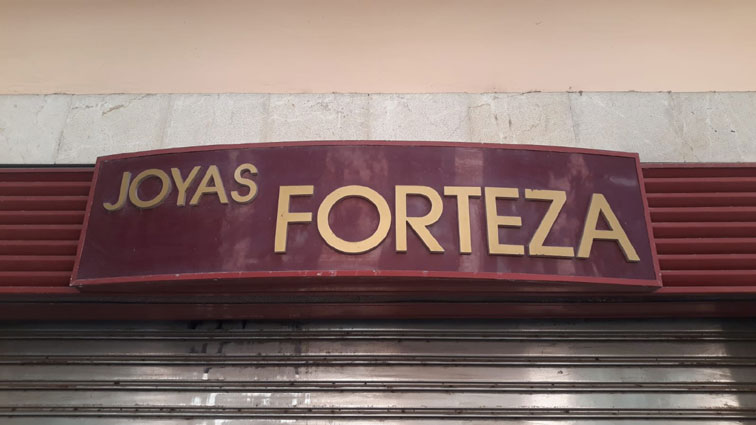
Mallorcan surnames
Mallorca is nowadays a very cosmopolitan place, with inhabitants of very diverse origins. Throughout history, people from different places have settled here, and this phenomenon has multiplied in recent years. With them came traditions, customs and also their names. In this post we will talk about Mallorcan surnames, those that are traditionally considered to be the most typical of the island.
HOW SURNAMES USED TO BE
Previously, people did not have what we understand today as a surname, and in our country they only began to be used from the 13th / 14th century onwards. However, people did have a given name, a personal name assigned to them by their parents according to their tastes. In the older communities, and to avoid overlapping names, something was added to differentiate them. Thus, for example, we have all heard of Thales of Miletus, Antiochus of Syracuse or Jesus of Natzaret, the second name not being a surname but simply a geographical location.
This was the norm in ancient times, with the exception of the Roman world and also the Classical Arabs, who had their own more complex and peculiar systems for designating people.
NAMES, SURNAMES, INLFUENCES AND MEANINGS
If we delve deeper into our history we will see that many of our current names and surnames have influences or even their origin in different civilizations. Specially from the Hebrew, Greek, Roman-Latin, Germanic and Arabic worlds.
Thus, for example:
From the Hebrew world: Gabriel (from Gabri’el, that means “God’s envoy”)
With Classical Greek origin: Felipe (from Philippos, “a lover of horses”) or Nicolás (from Nikolaos, “victory of the people”)
From Germanic: Alfonso (from Adalfuns, “willing nobleman”) or Ricardo (from Ricohard, “mighty and hard”)
Latin origin: Antonio (from the Nomen “Antonius”, a Roman family clan)

MALLORCA AND THE CATALAN-ARAGONESE CONQUEST
In 1229 the King of the Crown of Aragon, Jaime I, landed in Mallorca to begin his conquest. He was accompanied by hundreds of knights and thousands of soldiers, mainly of Catalan, Aragonese, Provençal amd Geonese origin.
This meant a drastic change in the population of the island, where the former Muslim settlers were mostly massacred, and replaced by the conquistadors. And with them their customs and surnames.
Even so, it seems that after the conquest by the christians, some surnames of Arab origin remained, such as Binnimelis or Bennàssar, (from Ibn-Nasr, or “son of Nàsser”), although perhaps these would be more linked to the name of a farmhouse than to a surviving Muslim family.
Currently, 40% of the surnames considered traditional Balearic surnames are actually toponyms from Catalonia, for example Lladó (or Lledó) corresponds to a municipality in Alt Empordá. Others, such as Ferrer, also have a clear Catalan origin, but in this case taken from a profession (Herrero, in Castillian Spanish) (Blacksmith, in English).
We will also find surnames related to a phisycal characteristic, such as Mut (mute), behavioural (Amorós) ( amorous behaviour), or to some animals as Vadell and Bou (calf and bull respectivelly).
Curiously, here in Mallorca the surnames are known as “Llinatges” (in castillian Spanish it would be “Linajes”) which sounds a bit ancestral to us, while in Catalonia it is called “Cognoms”.

NOBLE MALLORCAN SURNAMES
Wheather it was because they supported King Jaime I in the conquest en la conquista, or because in later centuries they managed to make a great fortune, certain family surnames were placed in the status of the Mallorcan nobility. For example, the Dameto, Zaforteza, Conrado, Ramis de Ayreflor, Puigdorfila, Dezcallar, Oleza and others, although today many of their descendants have occupations and lives like any other ordinary citizen.

“XUETAS” MALLORCAN SURNAMES
This Mallorcan term, unknown on the Peninsula, refers to the surnames of Jews who were forced to abandon their religion and convert to Christianity. They were the converted Jews.
Nowadays, there surnames are quite common in our island, and the best known are: Aguiló, Bonnín, Forteza, Fuster, Piña, Pomar, Miró, Picó, Segura, Tarongí….
OTHER INFLUENCES
As the centuries went by, surnames of other origins appeared, such as Rigo or Ferrari (of Italian origin), although it was from the 1950s onwards that the panorama changed completely.
The strong immigration from the Peninsula will mean that those considered as traditional surnames will gradually use presence and currently García, Martínez, López, Rodríguez y Sánchez are by far the most abundant in our community.
According to the author Gabriel Bibiloni, of the 1932 most “traditional” surnames that he has been able to document in his studies and that already existed in the 13th century, only 751 have survived. Among them are Pons (very common in Menorca), Ferrer, Serra, Riera, Oliver y Coll, which are the most common names on the island today.
Mass tourism has also brought new surnames of European origin (German, British, French, Scandinavians and others) and more recently, the presence of North African and South American immigrants is diversifying the spectrum once again.
FINAL BALANCE
Societies are living entities that are constantly changing, and this is reflected in our island, which is constantly influenced by new people and various migratory flows.
In fact, it should be mentioned that until the 19th century, in Mallorca there was only one surname, except for the nobles who already had two or even more. By Castillian contribution, the customs of having two surnames began, and in some cases the way of writing them was also modified: In 1870 the Civil Registry began to operate and many names and surnames were adapted to the Castillian Spanish spelling.
We do not know what the future will be like, but what is certain is that Mallorcans will have surnames with even more disparate origins than they do today.
This article is only a small summary of the great breadth of this subject. For those who want to go depper into this subject, we recommend Gabriel Bibiloni’s book “Els cognoms de les Illes Balears” (the surnames of the Belaric Islands).
If you are interested in the subject of Mallorcan surnames, you may be interested in knowing something about Mallorcan surnames in Puerto Rico, emigrated during the 20th century.
